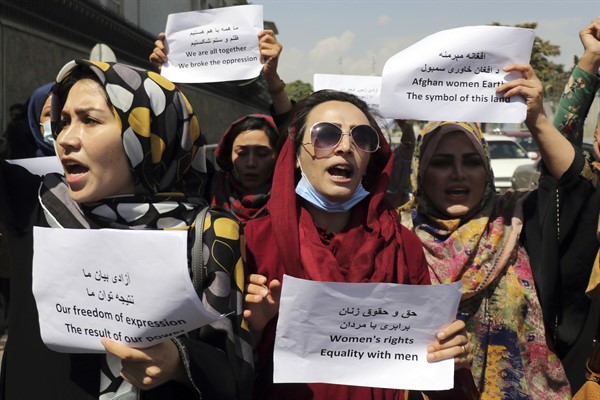A month ago, when all eyes were on the war in Ukraine, the Taliban quietly reneged on their promise to put school-age girls back in classrooms. This followed a six-month period in which women faced crippling restrictions on their employment, freedom of movement, dress, access to healthcare and participation in sports, plus gender-based violence, torture and arrest if they protested. But the international community’s initial response—to pull humanitarian aid, for instance—threatens to make matters even worse.
Since the U.S. withdrawal in August 2021, U.S. government agencies and representatives, like the wider international donor community, have been struggling to determine how best to support women’s human rights in Afghanistan against the Taliban’s repression. Dilemmas abound. For instance, should the U.S. insist on improved conditions for women in return for lifting sanctions, even if the sanctions themselves are hurting women? And should the U.S. support contenders against Taliban rule even if renewed civil war puts women at risk?
In a new report released this week, Human Security Lab, a research project at the University of Massachusetts-Amherst, took on these dilemmas, and found that U.S. efforts to influence the Taliban through sanctions, aid conditionality and shaming are not likely to be effective, and could in fact backfire. Based on consultations with 16 academic experts, numerous international practitioners and a wide variety of Afghan civil society representatives, the report argues that Washington should instead focus on mitigating the consequences of its withdrawal on women using whatever mechanisms remain within its control.

